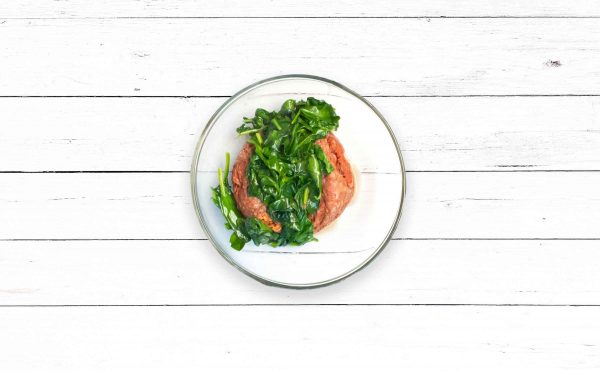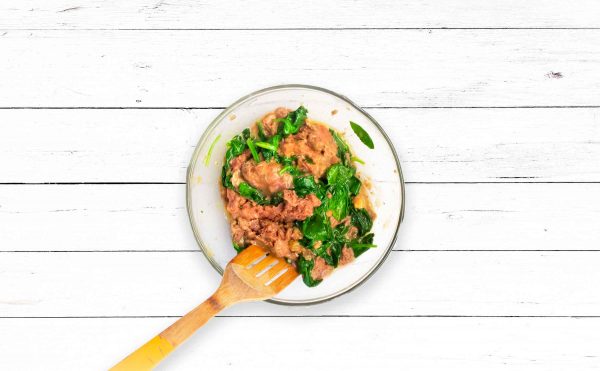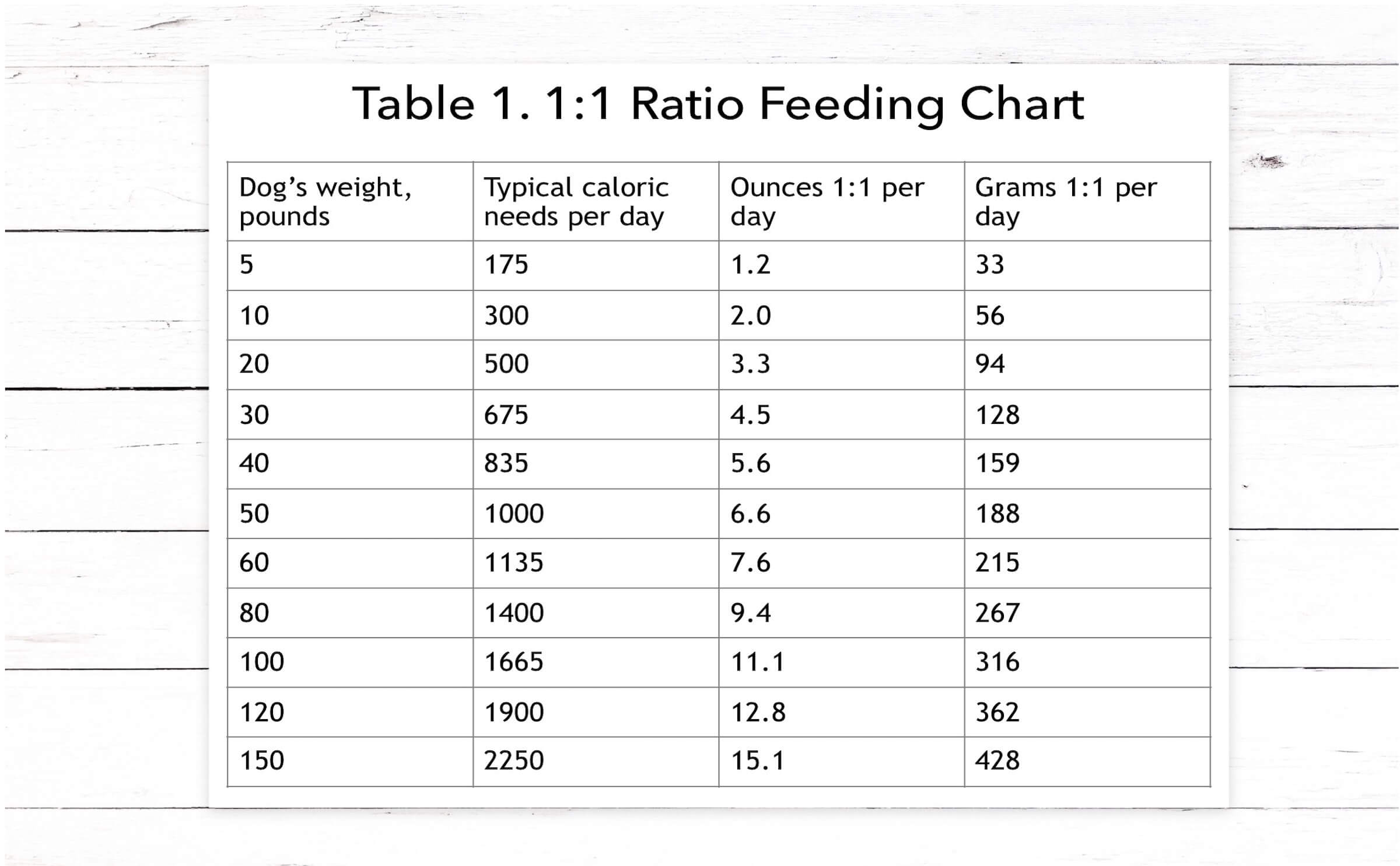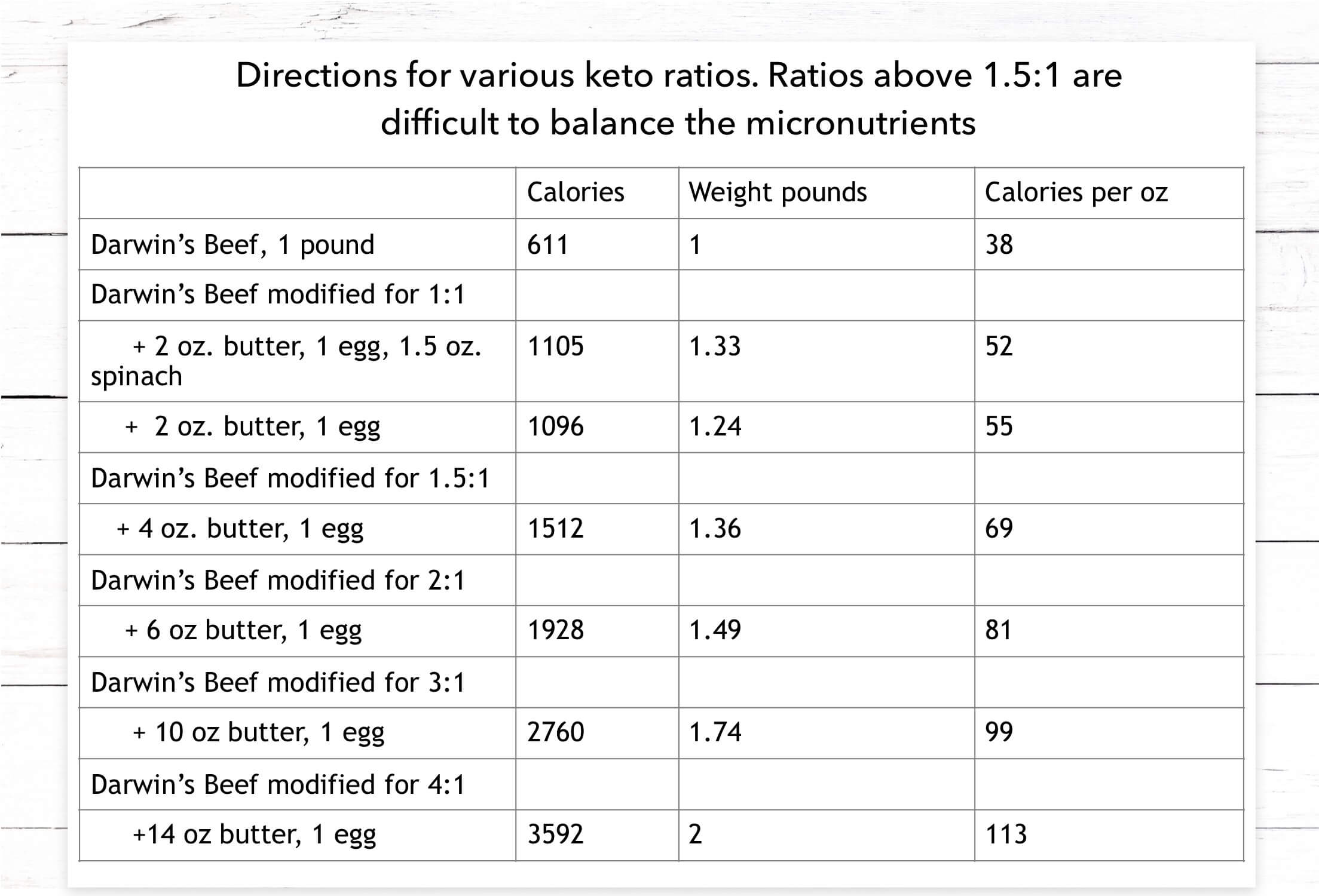How to Convert Darwin’s Beef into a Ketogenic Diet
3/19/19

Last Updated on
By Steve Brown
While ketogenic diets are on the rise in popularity among humans with cancer, diabetes, and obesity, some veterinarians are recommending ketogenic diets for older dogs with similar ailments. Use this recipe to convert your Darwin’s diet to ketogenic dog food.
In this blog I will show you how easy it is to convert Darwin’s Beef food to a balanced ketogenic diet. Here, balanced means the diet contains all the nutrients, including minerals, vitamins, fatty acids and amino acids deemed essential by pet food regulators in the USA and in Europe.
A ketogenic diet is a high-fat, low-carbohydrate diet, which forces the body to burn fats rather than carbohydrates for energy. The “keto” in “ketogenic” references small fuel molecules called ketones that the diet forces the body to produce. This is an alternative fuel source used when blood sugar (glucose) is in short supply.
Ketogenic diets are usually for older dogs, they are not for growth, not for puppies nor young adults unless recommended by your veterinarian. Please talk to your veterinarian before adopting a ketogenic diet for your dog.
Keto ratios
The keto ratio describes the amount of fat in the diet compared to the total amount of protein and net carbohydrate. (Net carbohydrate are total carbohydrate less fiber.) Keto ratio is a simple formula for dog foods:
grams of fat/(grams of protein + grams of net carbohydrate)
One pound of Darwin’s Beef for all life stages has a 0.4 keto ratio, broken down below. A moderate keto diet has a ratio of 1:1; the more extreme keto diets, which are nearly impossible to micronutrient balance, have ratios of 4:1.
- Grams of fat 33
- Grams of protein 62
- Net carbs 16.5
- Keto ratio: 33/(62+16.5) = 0.4
If your veterinarian recommends a keto diet for your dog, ask what keto ratio she recommends.
How to convert 1 pound of Darwin’s beef into a balanced moderate ketogenic diet:
As previously stated, a moderate ketogenic diet has a keto ratio of 1:1.
Please note that this conversion is for Darwin’s Beef only. If you’re interested in a poultry ketogenic diet, let Darwin’s know.
All nutrient content calculations are approximate. The nutrient content of natural foods vary, often significantly.
We’re going to start with 1 pound of Darwin’s Beef, and add varying amounts of butter (we can use almost any fat; people often use coconut oil) and 1 egg (for selenium and other nutrients).
1:1 Ratio Recipe
For this recipe, you’ll need:
1 pound of Darwin’s Beef
2 ounces of butter. I often recommend warming the butter because it’s easier to blend with the meat, and, I’ve found from experience, that when some dogs become finicky eaters as they age. Warm butter also adds taste.
1 egg
1.5 ounces of fresh spinach (optional)
First, you may leave both the butter and raw, fresh spinach uncooked. However, warming both adds to the flavor for your dog.

Next, add your butter and spinach (if you chose to include it) to 1 pound of Darwin’s Beef. You can use either Natural Selections™ or BioLogics™.

Then, add one raw egg. You may lightly cook it if your dog doesn’t like the taste of raw egg.

The last step, which is optional, is combining. We found it best to combined, especially if you’re splitting this between multiple animals, as it ensures they’re getting the proper ratios of each nutrient. Feel free to store leftovers in a glass or food-safe plastic container in the refrigerator overnight. It is not recommended to store Darwin’s in the fridge for more than 48 hours.

With the addition of butter and an egg, the diet is now deficient in potassium and magnesium, two essential minerals. To balance with whole foods for adult dogs only, add 1.5 ounces of raw or lightly cooked spinach, weighing when raw. No other vegetable that I’ve yet analyzed provides sufficient levels of both potassium and magnesium.
Keto ratio, with 2 oz. butter, 1 egg, and 1.5 oz. spinach
Grams of fat: 89
Grams of protein: 70
Net carbs 17.5
Ratio 89/(70+17.5)=1
If you’re not adding spinach, to meet recommended nutritional minimums, add:
80 mg potassium
Most potassium supplements are 200 – 250 mg of potassium. Cut in half and blend. Thorne Potassium citrate contains 99 mg, so if you choose to use that instead, blend the entire capsule.
40 -90 mg magnesium
40 mg of magnesium meets AAFCO minimums, and 90 mg meets the more stringent European standard minimums.
It’s easiest to use 100 mg magnesium citrate. Blend entire capsule, or use ½ of 200 mg capsule.
This is balanced for adults only, not for growing dogs. Keto diets are not recommended for puppies as they do not supply enough of the essential nutrients for growth. For example, Darwin’s Beef is designed for all life stages, including growth, but when we convert it to a keto diet, it lacks potassium, magnesium, iron, zinc, manganese, and iodine for growth.
More of a mineral is not necessarily better, please don’t use more of any mineral suggested unless recommended by your veterinarian.
Feeding directions for keto ratio 1:1
A 1:1 keto ratio diet is more calorically dense, because fat and protein have more than twice as many calories per ounce. So feed about one-third less of a 1:1 ratio diet than you would unchanged Darwin’s.
In the below chart, we are using energy estimates for less active adult dogs. Indoor sedentary dogs will eat less. Keep your dog lean and start on the low side.

1.5:1 Ratio Recipe
If your veterinarian recommends a keto ratio 1.5:1, add 4 ounces butter or other fat and 1 egg to 1 pound of Darwin’s beef. The diet is deficient in many trace minerals and will not be easy to balance. To meet AAFCO minimums, add 810 mg potassium, 110 mg magnesium, 0.3 mg manganese, 8 mg zinc, 110 micrograms iodine, and 30 micrograms of selenium. Please talk to your veterinarian before attempting this.
1.5:1 diets have about 25% more calories per gram than do 1:1 diets, so feed 25% less than the feeding table above.




